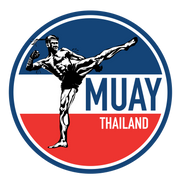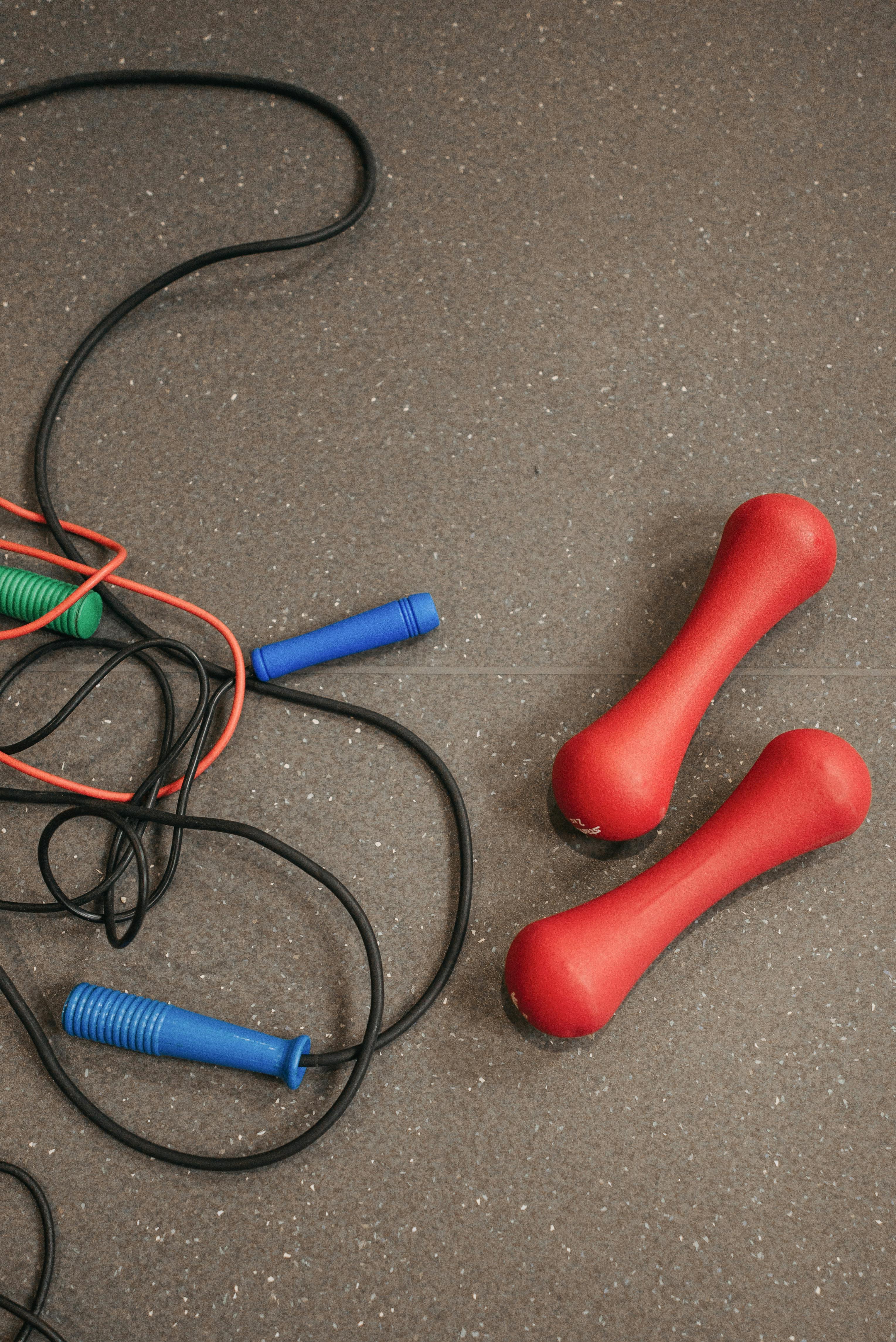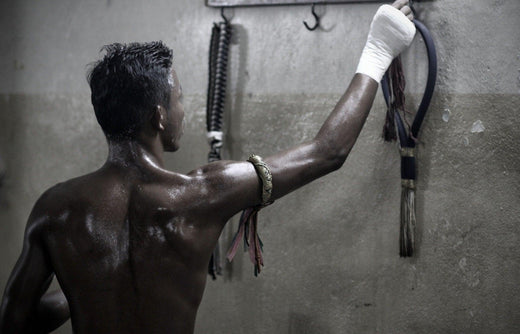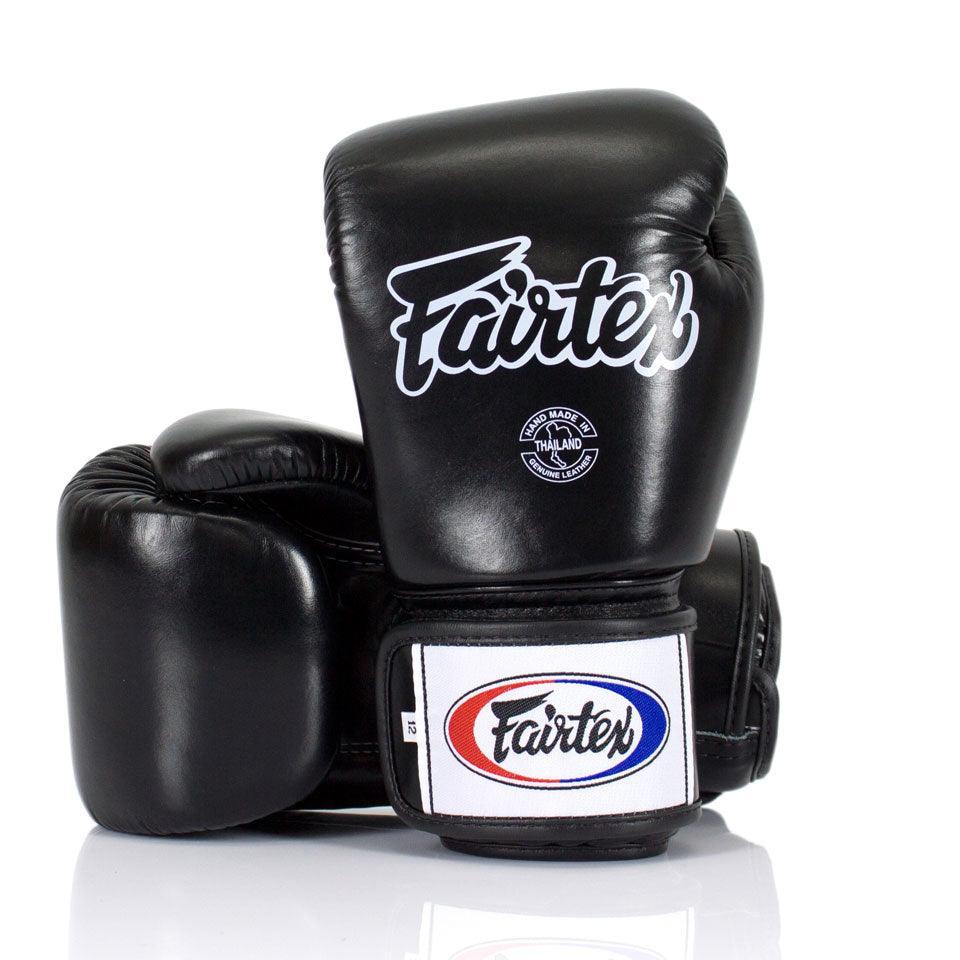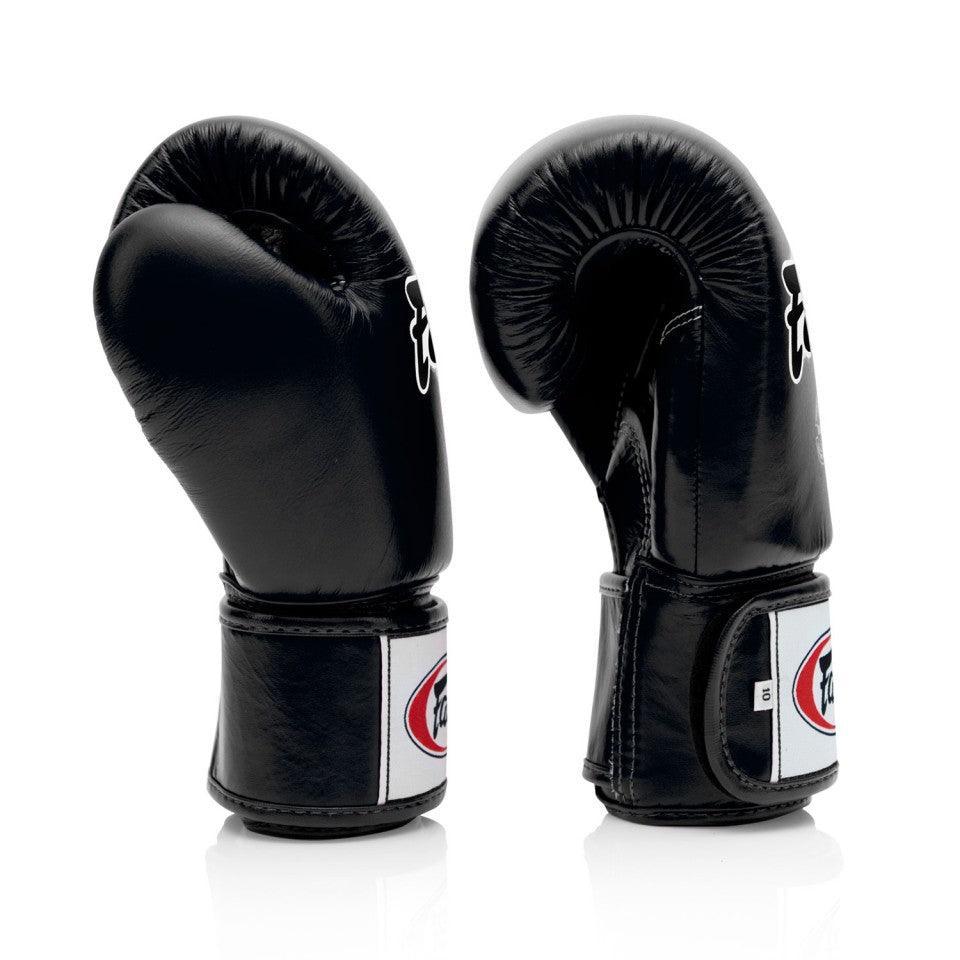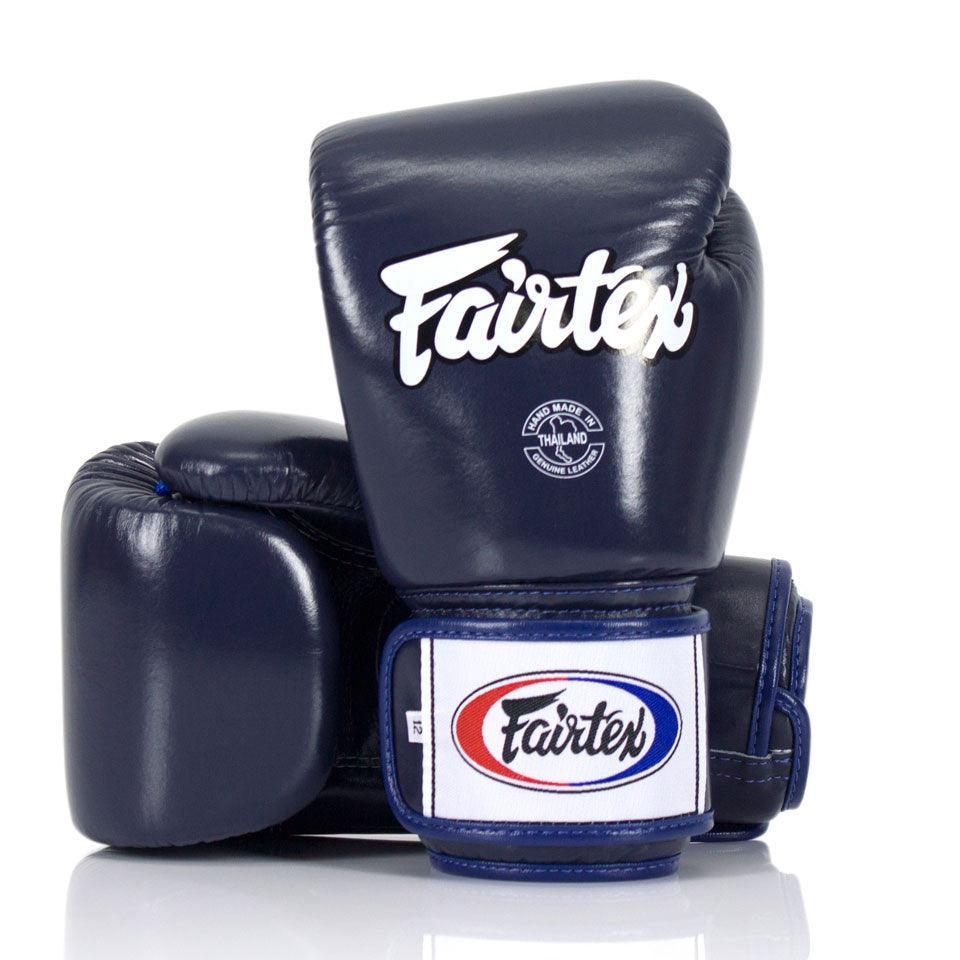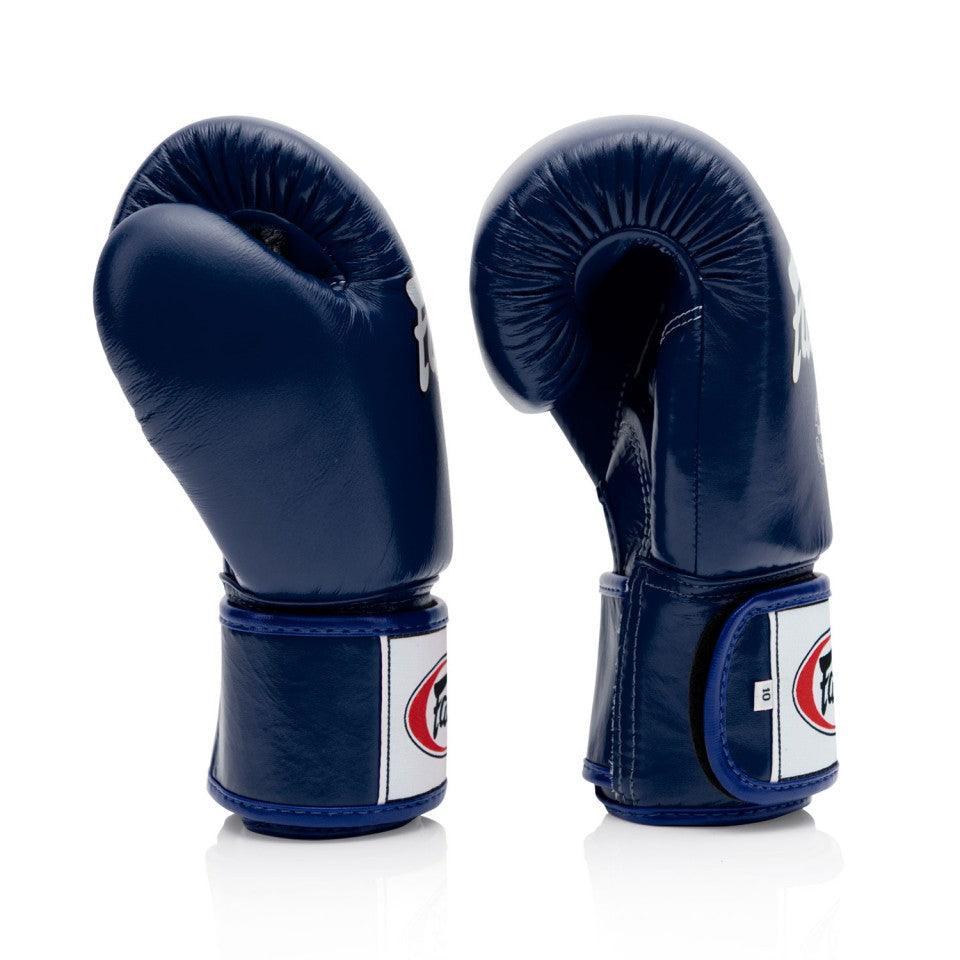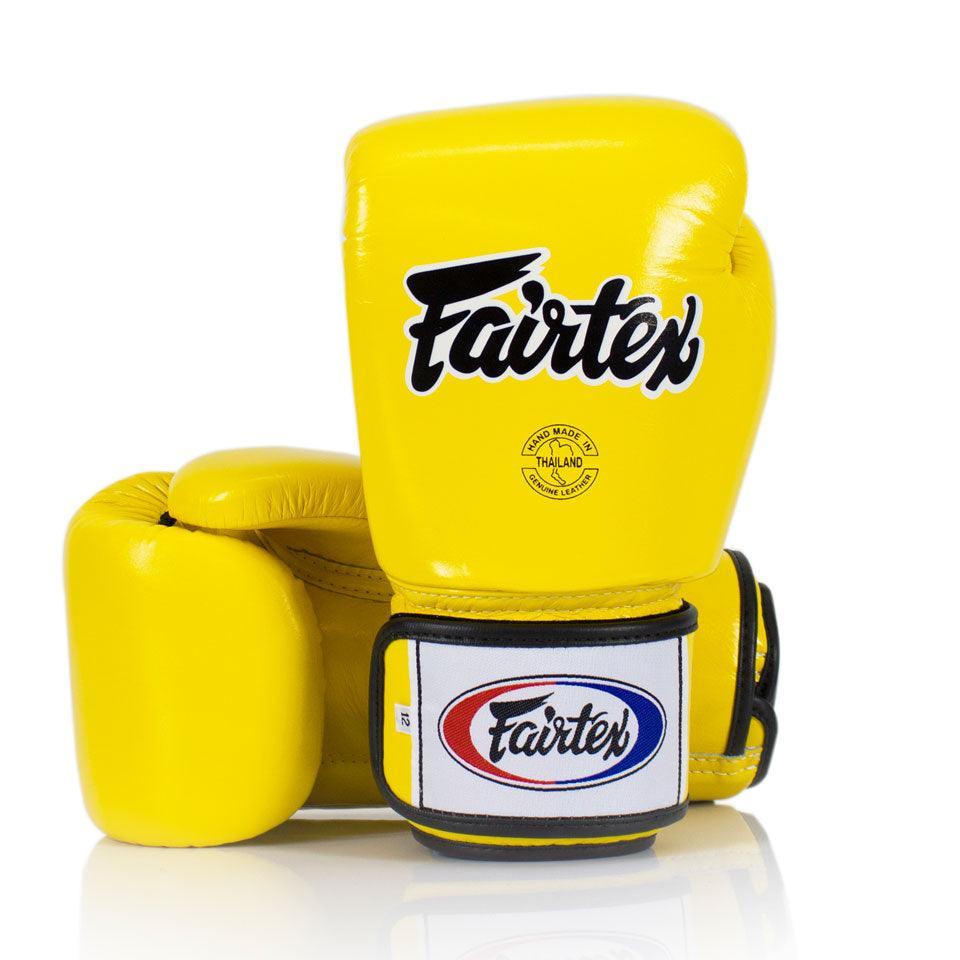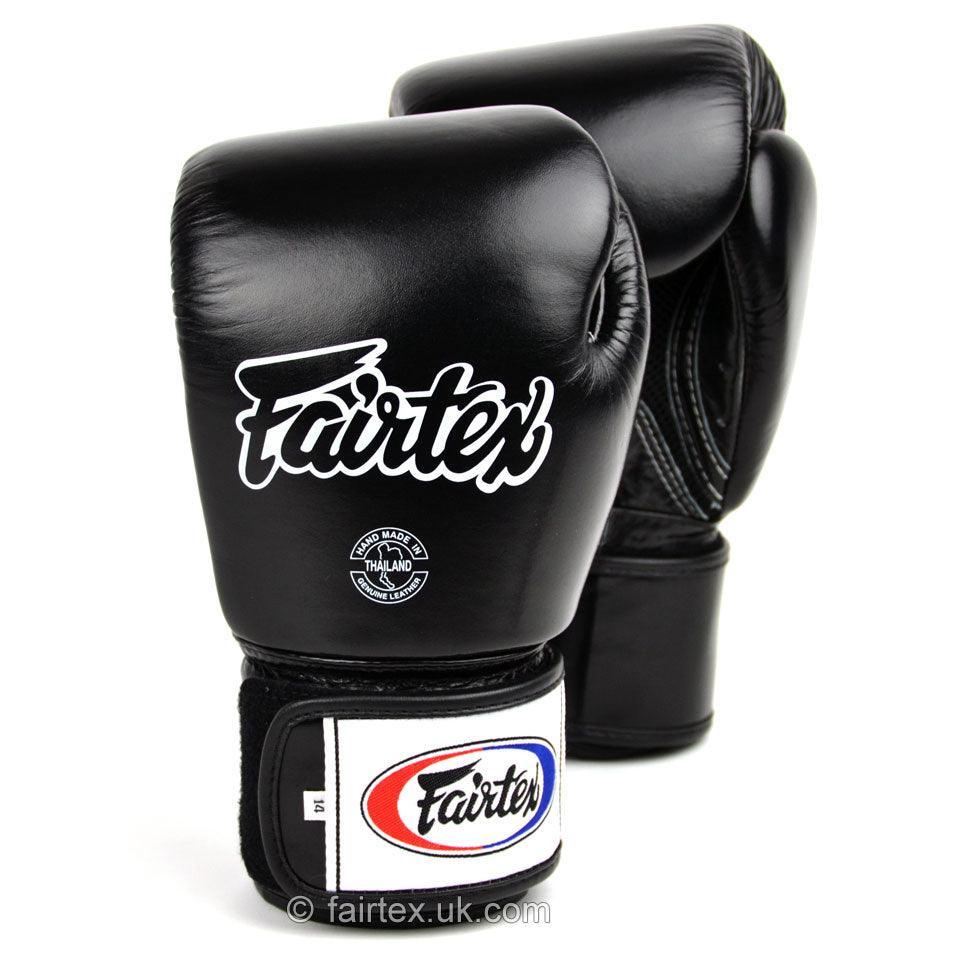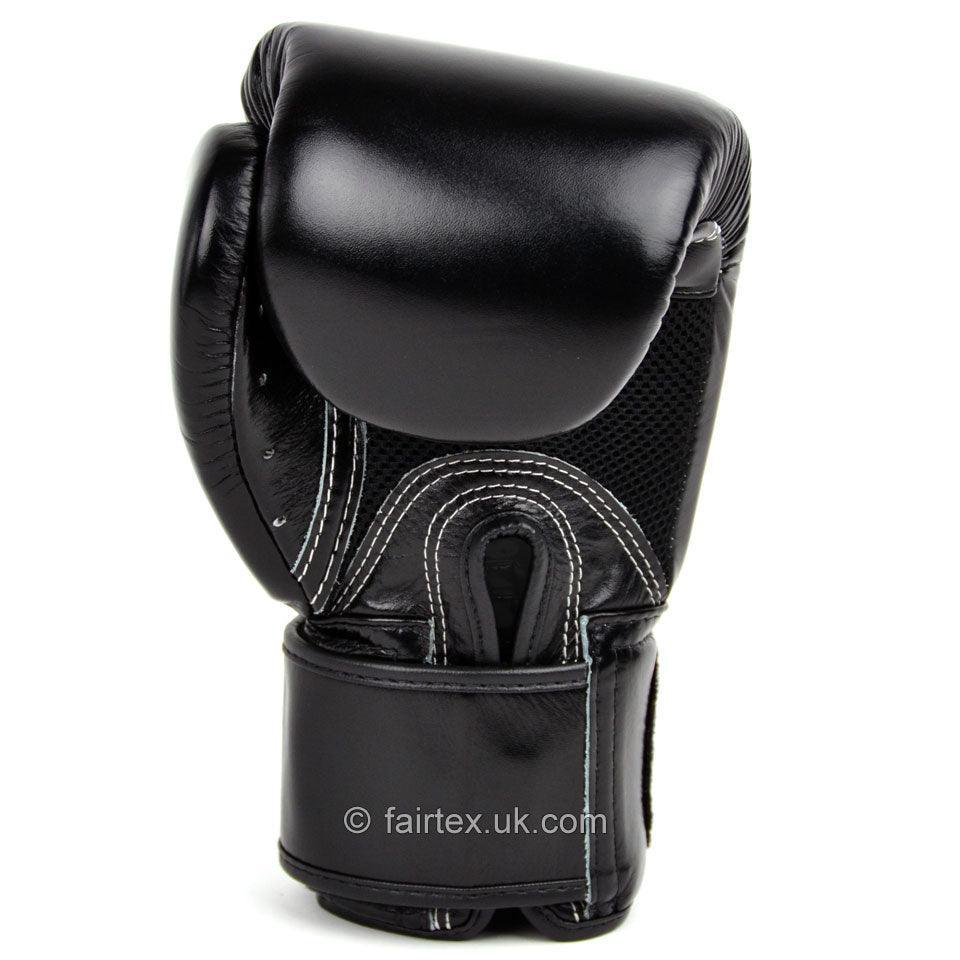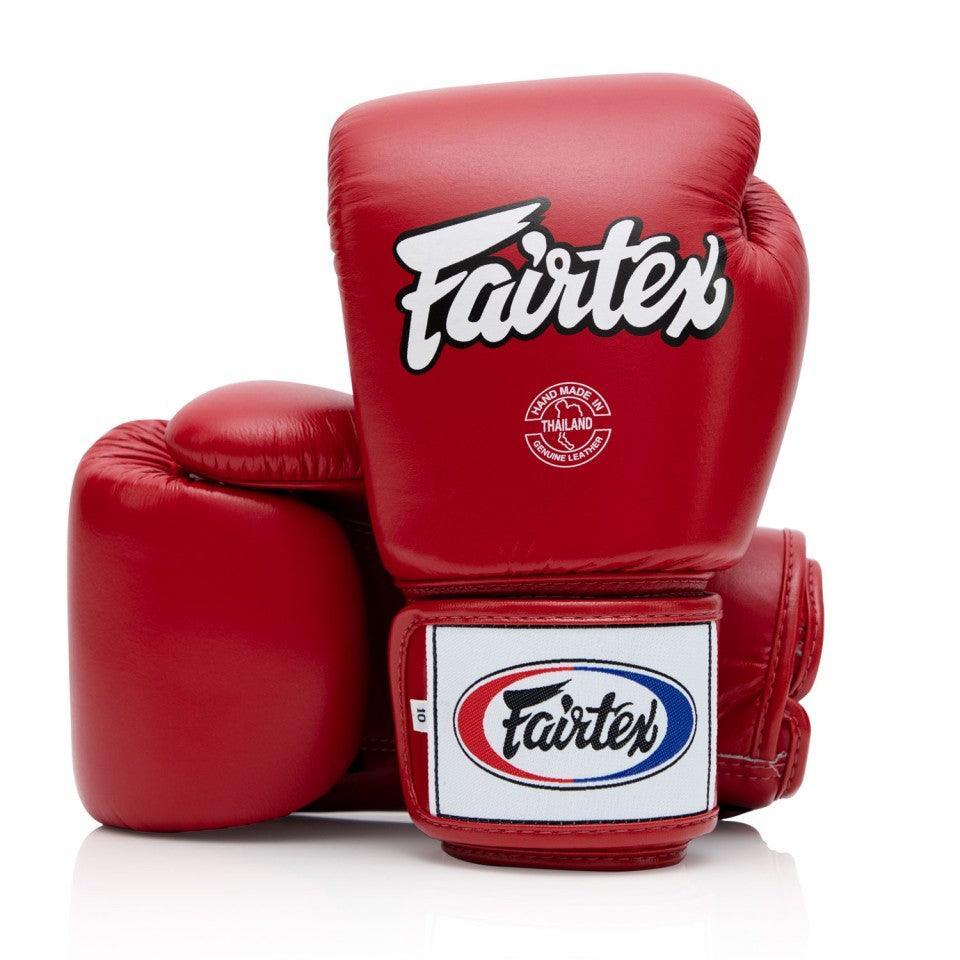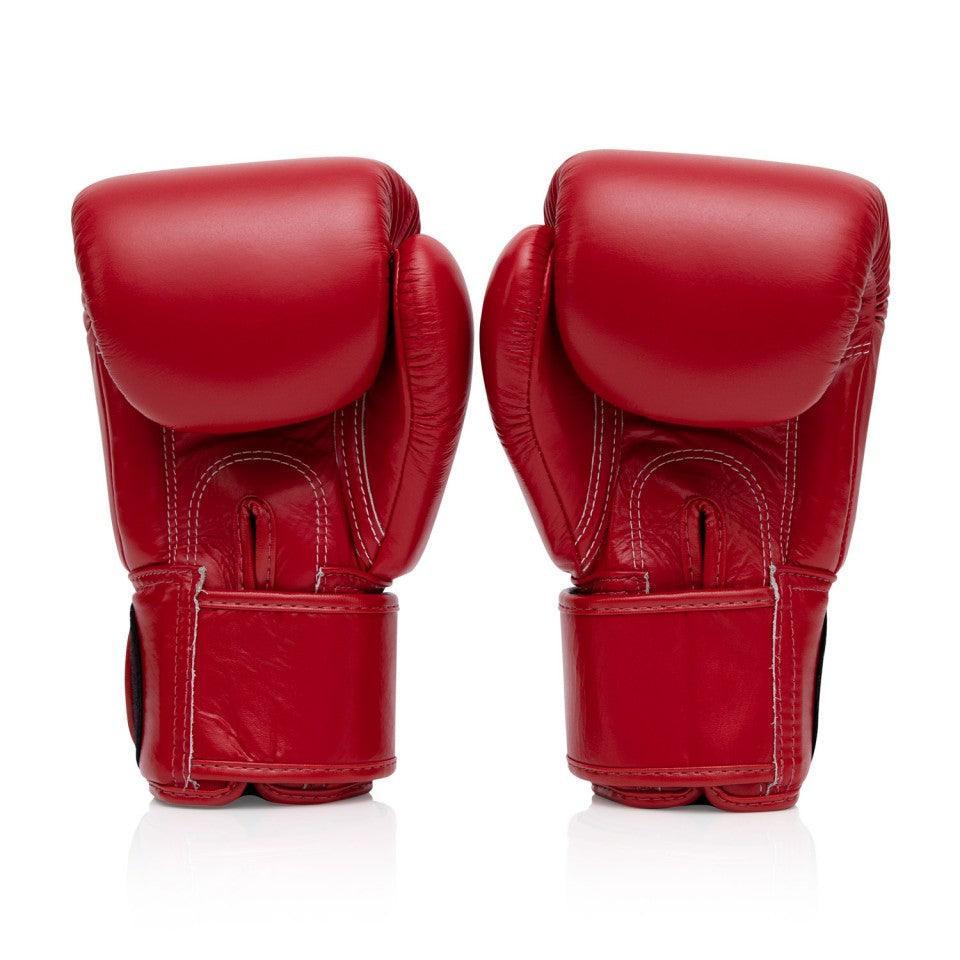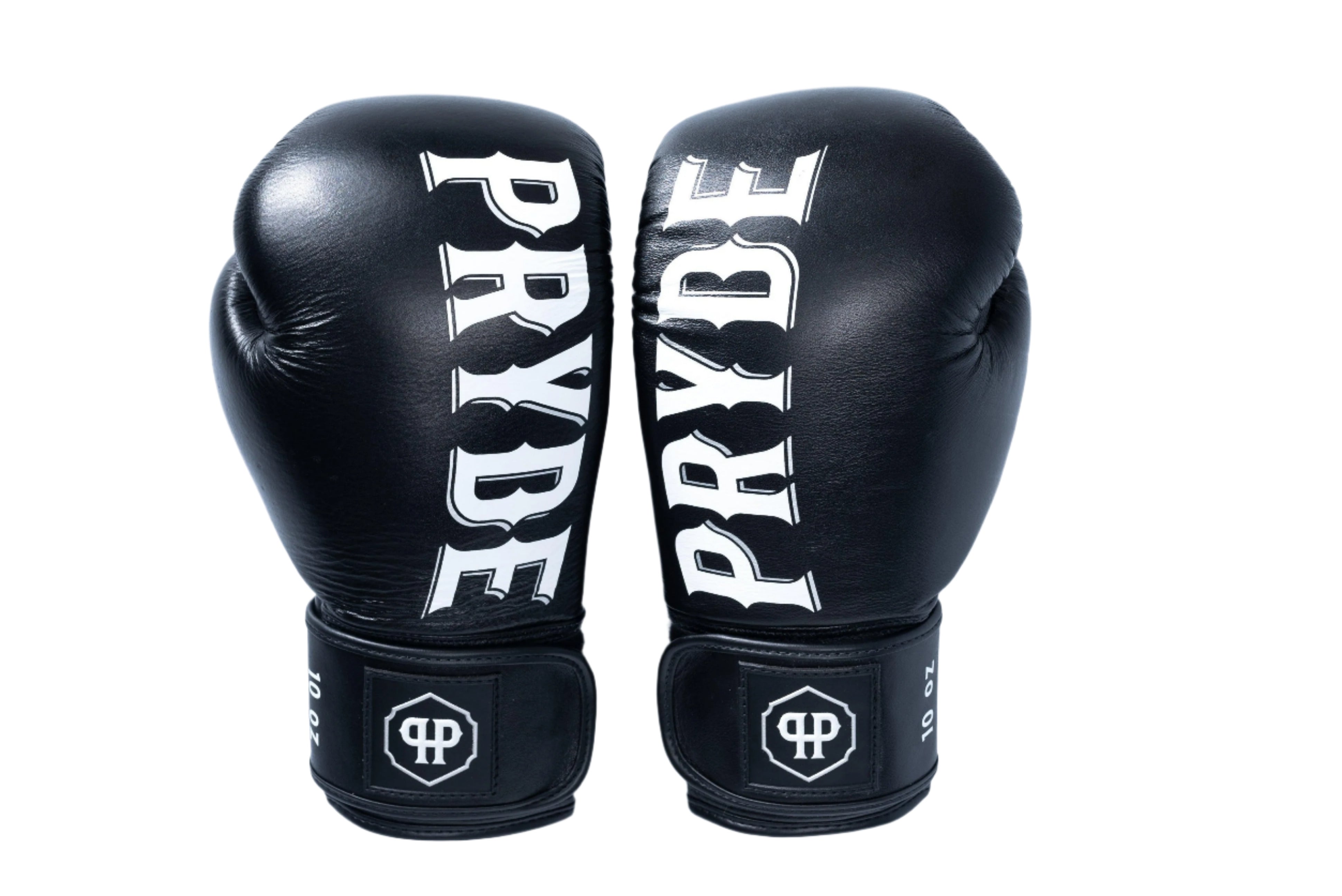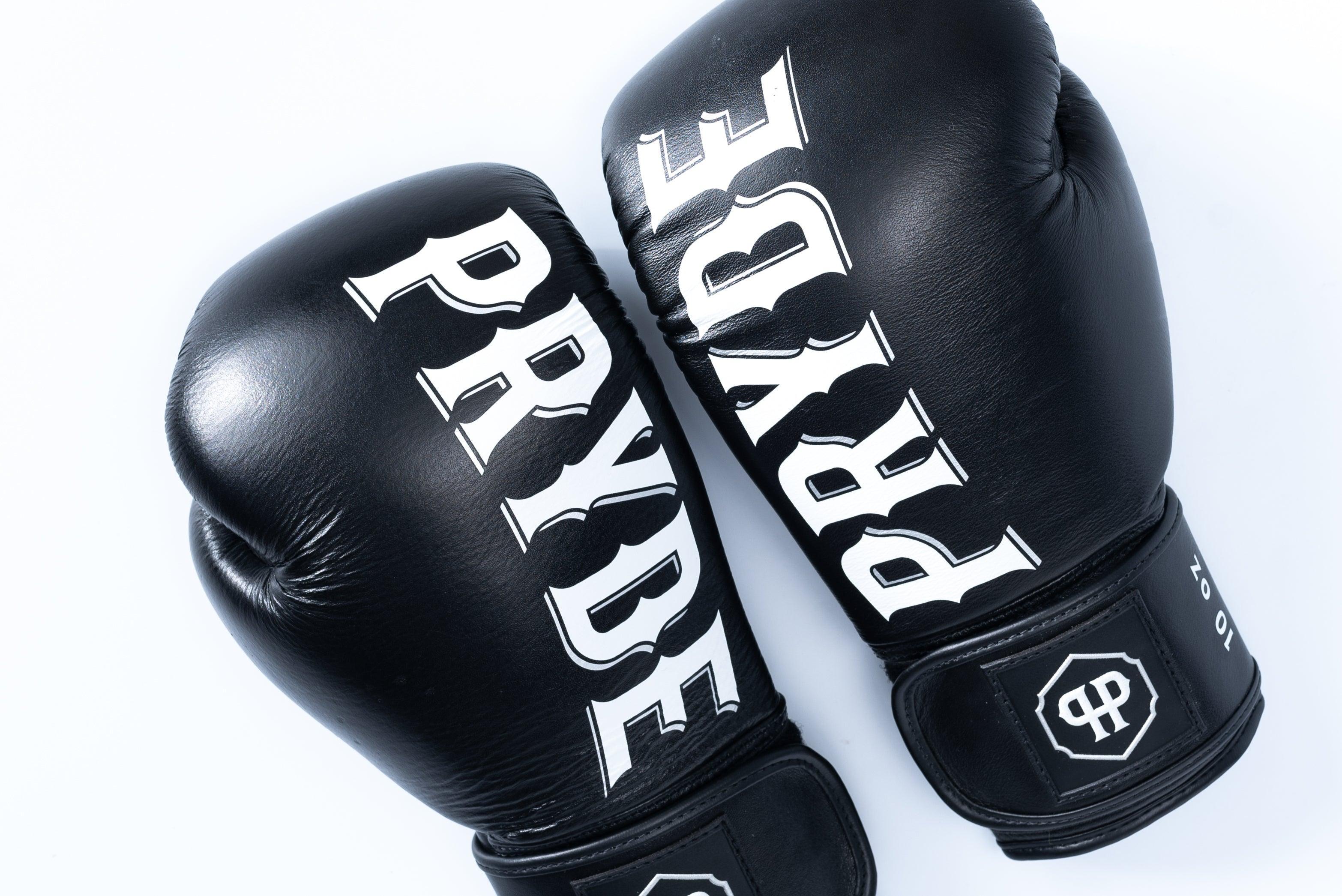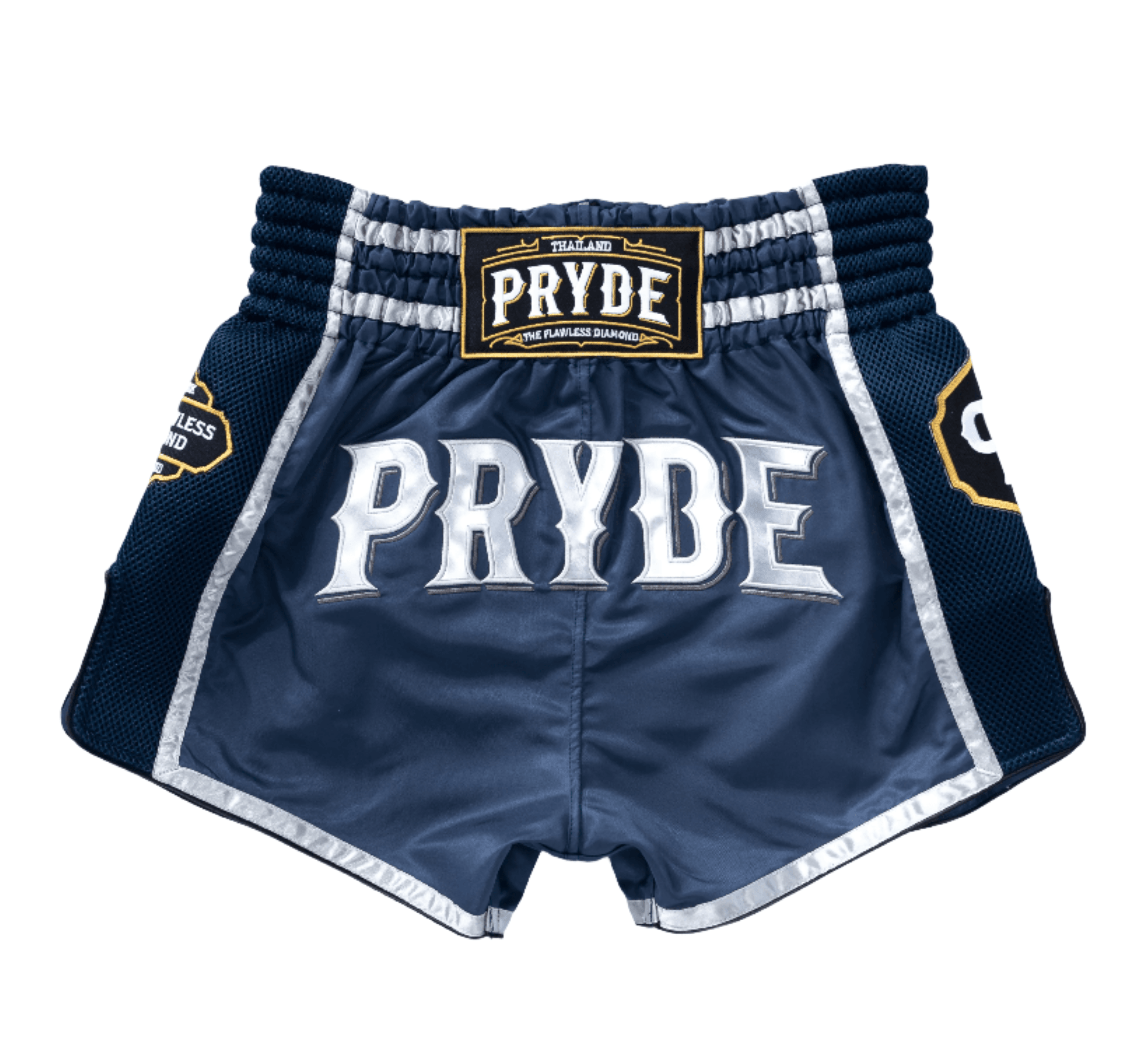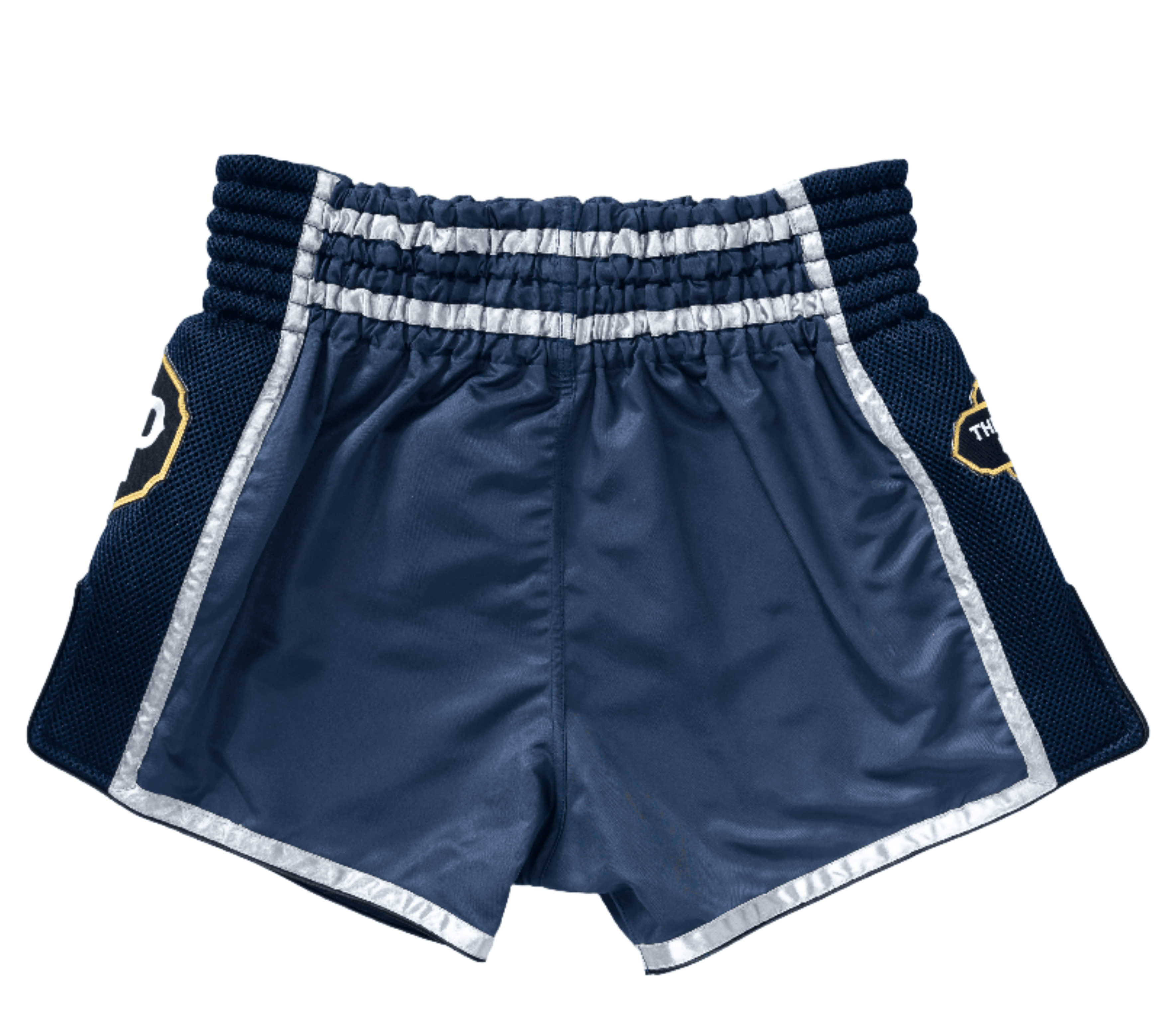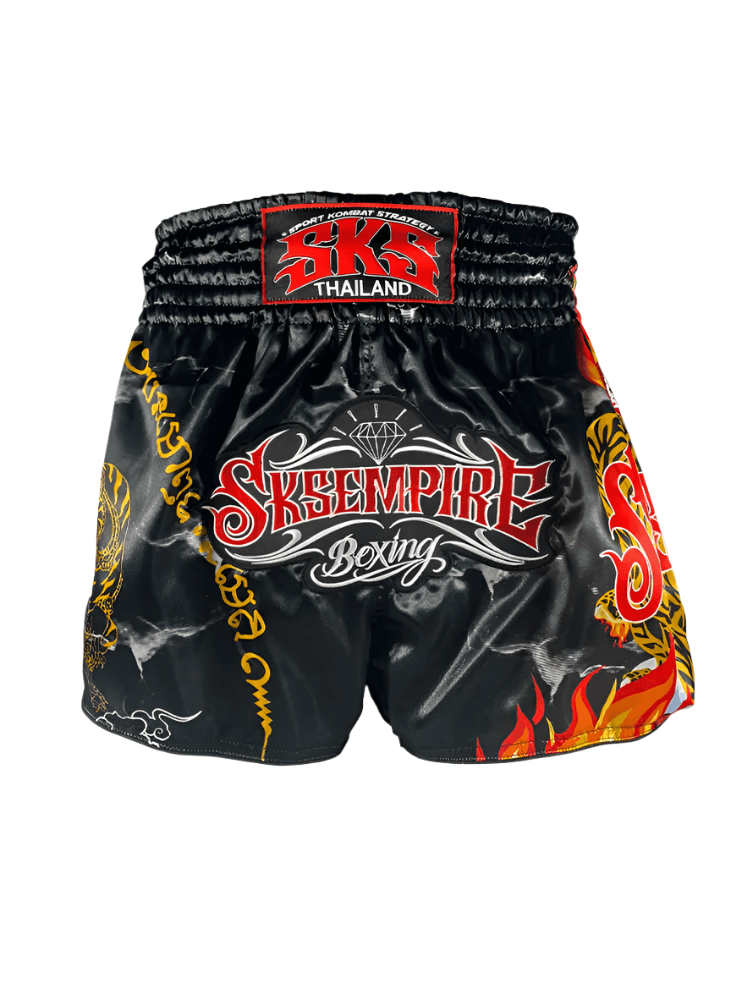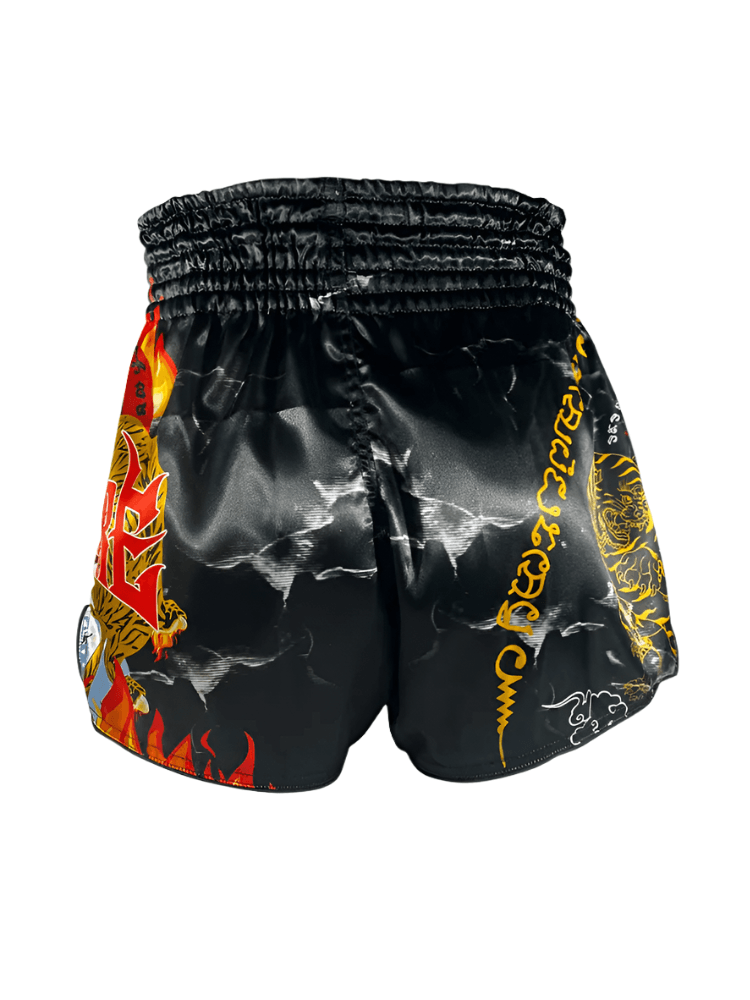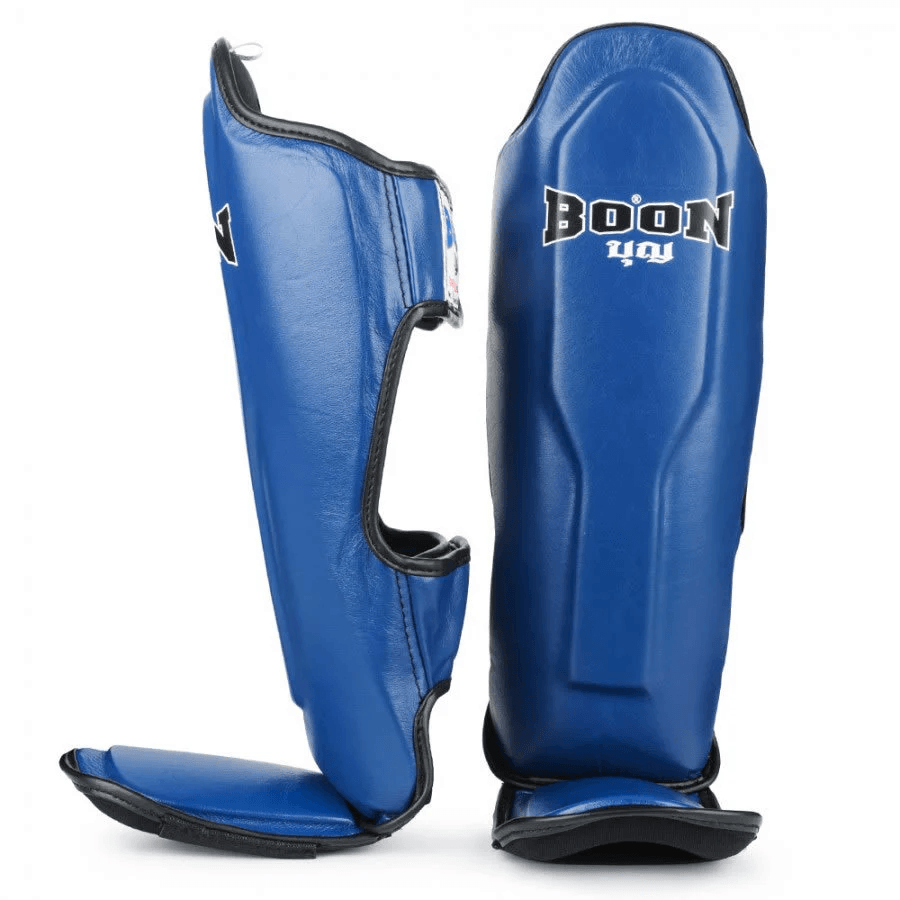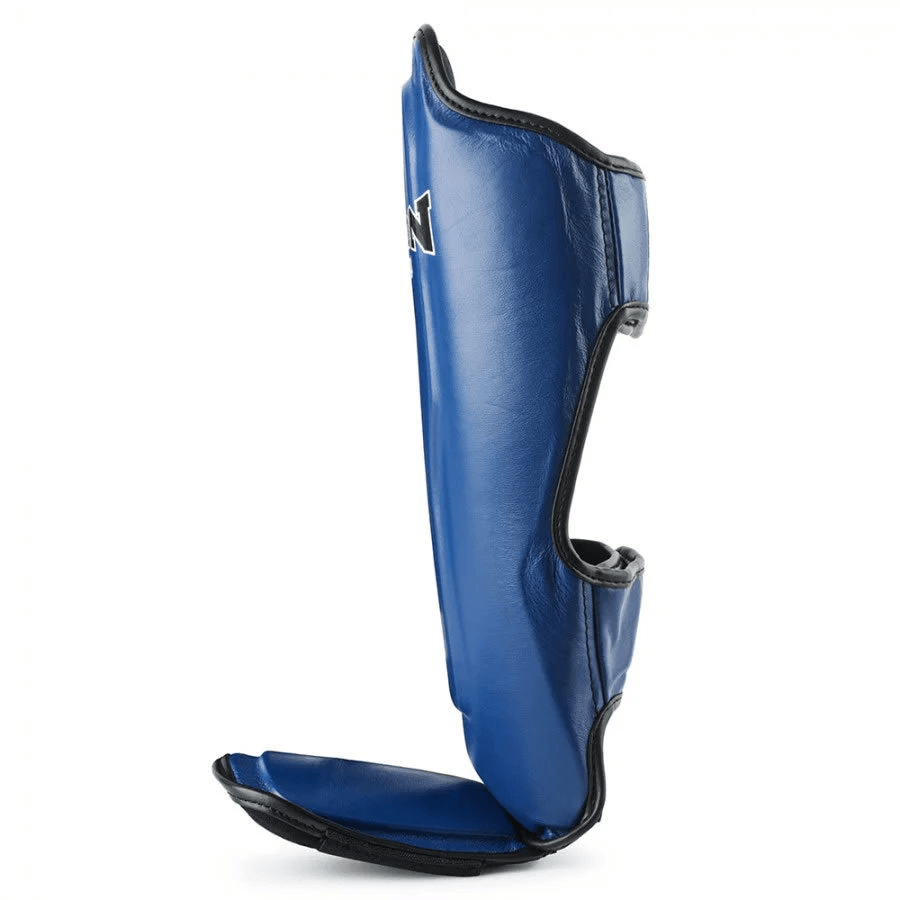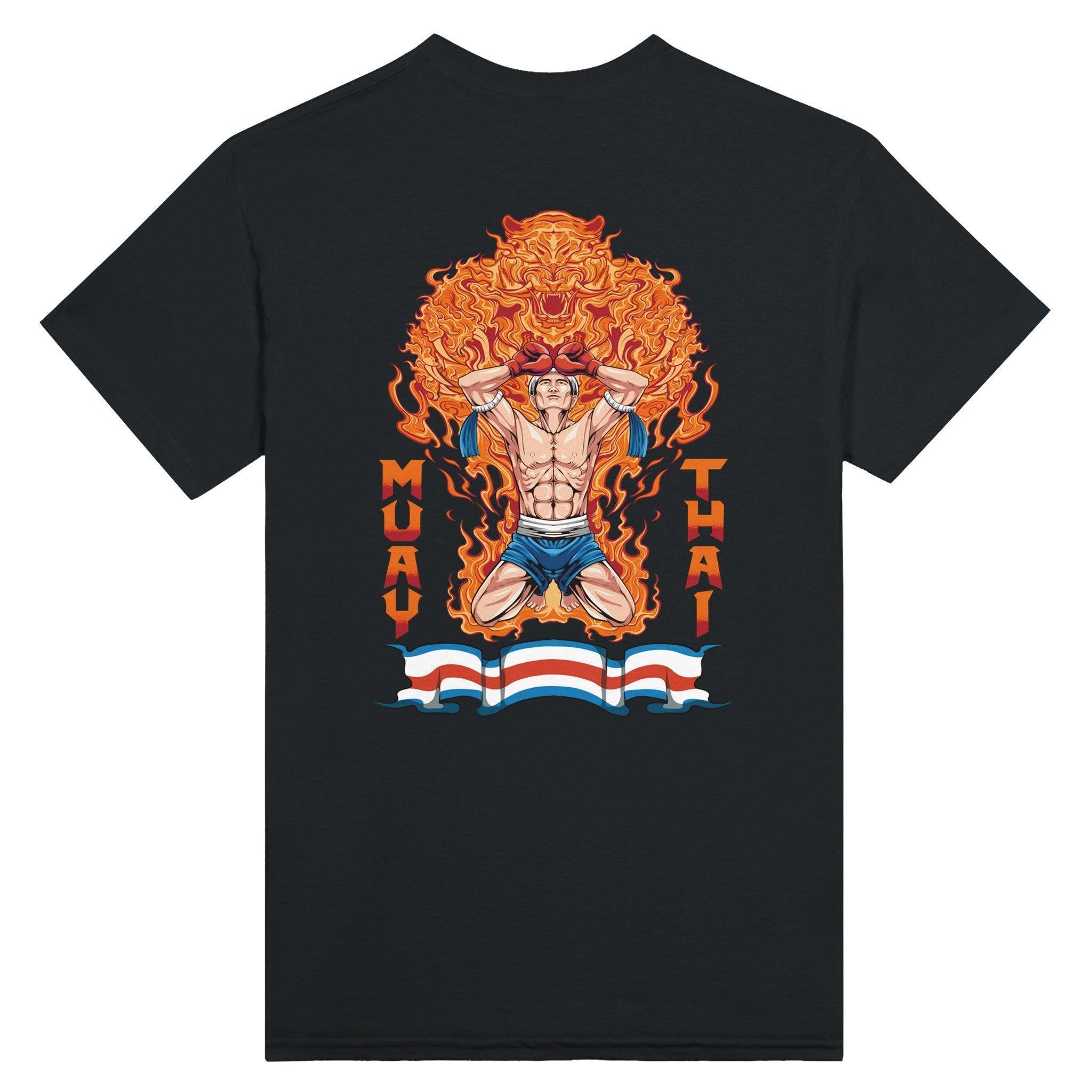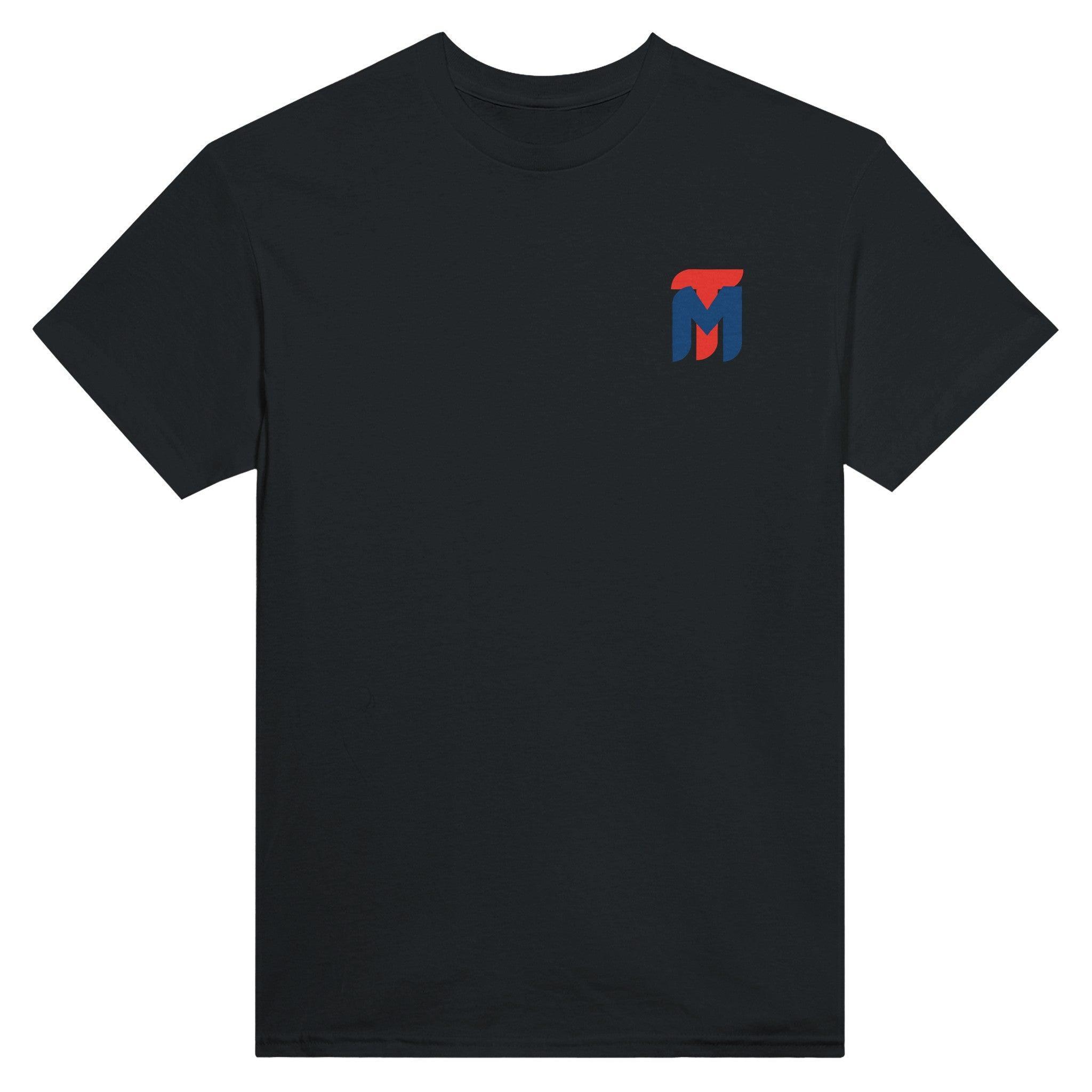Muay Thai Gloves
Besides what you wear to training sessions (i.e. t-shirt and shorts), your Muay Thai gloves are the most frequently used bit of kit. You may have different pairs for specific types of training (e.g. a smaller pair for bag & pad work and a larger pair for sparring) but they nonetheless come into contact with the widest range of surfaces in the gym. As such, they quickly and frequently gather all sorts of dirt, dust, bodily fluids and more. Although there are fewer crevices and secluded areas on gloves than some other bits of equipment, dirt and dust often finds it way into those hidden spaces, such as in the hook and loop enclosure and around the thumb, and sticks around unless forcibly removed. As such, regular cleaning is key to ensure a longer life and reducing the chance of odour developing.
After each session, it’s important to wipe gloves down before you put them in your gym bag so you avoid transferring dust etc. into your bag. If you can wipe them down with some anti-bacterial spray and a wipe, this is optimal as it gets rid of the bacteria that contributes to odours developing. When scrubbing, pay extra attention to the crevices. As soon as you get home, remove them from your bag and keep them in a well-ventilated area, out of direct sunlight (this last point is especially important if they are made from genuine leather as the sun can degrade them). Alternatively, you can put them in a plastic bag and store them in the freezer to help keep them fresh. You can also put a pair of NO STINK deodorisers in them between sessions to maintain their freshness.
A more detailed guide on how to clean your gloves effectively can be found here.
Muay Thai Shin Guards
If you frequently drill and spar, it’s likely that your shin guards will quickly show signs of the various bits of dust and dirt in the gym, along with any of your sweat that gets onto them and any blood you that you or your partners may shed. The various crevices, buckles, hooks, loops and tight spots in the shin guards can retain some of this grime for a long time if not addressed. Therefore, regularly washing is needed to keep them maintained and prevent them from developing a bad odour.
The best washing method depends on the materials used in your shin guards. For elasticated shin guards with a foam padding, you can use similar methods as detailed below in the elbow and ankle guards section. Soaking and scrubbing is the best method and it’s important not to use a washing machine or very hot water as it can degrade some of the materials. Air dry afterwards. For synthetic or genuine leather shin guards, a hand wash approach is needed. Spray some disinfectant and wipe down with a wet cloth, paying particular attention to the crevices, loopholes and joints, as these areas easily maintain dirt and dust unless you pay particular attention. These types of shin guards should only be air dried too.
Muay Thai Shorts
Muay Thai shorts should be washed regularly as they quickly accumulate dirt, dust and bacteria from the gym. They can also accumulate sweat and blood from heavy sessions. While all these marks aren’t immediately visible, they are common and a failure to wash your shorts can result in stains, bad odours and even stiff shorts (depending on the material).
Therefore, washing shorts regularly is a must. Fortunately, it’s a straight-forward process which doesn’t require too much effort, although there are some slight differences in approach depending on the materials in your shorts.
Hand washing is preferred for all types of Muay Thai shorts and can be easily done with a bowl of mild detergent and warm water. For cotton shorts, this is probably the best way to go as they are not as durable as polyester or nylon shorts. Alternatively, if you're in a rush, you can machine wash shorts and can do so alongside your delicates on a cold wash with mild detergent. Air dry afterwards.
Warning: never machine dry your shorts. Not only does this weaken the elastic waistband but it can also cause your shorts to shrink. This is a bad move and not worth the risk as most shorts air dry quickly after washing.
For more details on caring for your shorts, as well as guidance on fit, sizing and more, check out our Ultimate Guide To Muay Thai Shorts.

Hand Wraps
Like shorts, hand wraps accumulate all sorts of dirt, dust, sweat and more. Often, you’ll have hand wraps on when doing cardio work in the gym and so they make contact with the gym floor when doing push-ups, for example. Whatever sticks to them then transfers to your gloves when you put them on. While inside your gloves, your hands will sweat a little, which is then absorbed by your hand wraps. With that, it’s easy to see how they can quickly and easily get dirty and develop a bad odour.
Therefore, hand wraps should be washed regularly and can be done so alongside your shorts. The approach is the same as with shorts and hand wraps can be thoroughly cleaned either by hand or machine. It’s important to avoid hot water when washing as this can make the dyes fade. Air dry thereafter as you should avoid machine drying for the same reasons as shorts. To hand wash your hand wraps, fill a bucket with soapy water and agitate the wraps for one or two minutes before rinsing them off. This will ensure that your hand wraps are clean and fresh for your next training session.
Ankle Guards/Supports
Ankle guards (or anklets) quickly accumulate all sorts of dirt and dust as they make consistent contact with the gym floor. As a result, they also soak up any fluids, along with your sweat that drips down onto them. If you use them regularly, it won’t take long before they look and smell dirty. Cleaning frequency will depend on how regularly you use them but it’s good practice to wash after each use, alongside other bits of your gear.
Fortunately, cleaning them is extremely easy. You can opt to use a washing machine on a cold or warm setting or hand wash. Due to the abundance of elastic in them, do not dry them in a dryer as this will degrade the elastic and reduce their effectiveness. If hand washing, simply soak in warm water with mild detergent or baking soda and scrub afterwards. Air dry after use.
Elbow Guards
If you treat your elbow guards properly and keep them away from the floor, they will likely keep relatively clean (compared with your other bits of gear) for a long period. Furthermore, if you only use them for sparring, they have less chance of accumulating dirt and dust from the gym but can get bloody. As such, they are unlikely to need frequent cleaning, but they should be washed after long sparring sessions, especially if they end up bloody and/or sweaty.
Most elbow guards feature thick padding covered in an elasticated sleeve (which is like an ankle guard). That padding is likely to be too fragile for the washing machine and could be negatively impacted by detergent, although this may take numerous washes to manifest. So, while you can risk it, it’s probably best to hand wash with other parts of your gear. Soak in warm water with baking soda or mild detergent and then scrub afterwards. Pay particular attention to the folds and outer areas which make contact when striking. Don't forget to wash your elbow pads with other boxing apparel, such as hand wraps and ankle guards, to prevent bacteria and musty smells. Air dry them afterwards.
Mouthguards/Gumshields
Mouthguards and their cases accumulate a great deal of bacteria, saliva and even blood, especially if you spar hard regularly. It’s important to avoid ever leaving your mouthguard out and about and your case open in the gym while training, as this will expose it to additional dirt, dust and grime.
Fortunately, cleaning your mouthguard is super easy. A quick rinse between sessions is a good start, however, a more thorough clean is recommended from time to time. To do so, mix some baking soda with water and use a spare toothbrush to rub the mixture all over the mouthguard and the case. Rinse thoroughly thereafter. You could do the same with vinegar (white or apple cider work well), however, this can leave a scent which can be off-putting.
Headguards
Headguards don’t seem to be as popular in pure Muay Thai gyms as they are in boxing, MMA and kickboxing gyms, however, that doesn’t mean they shouldn’t be used. They are especially useful if you compete regularly or spar hard. That said, if you do use a headguard it’s likely you’ll only use it once or twice a week, unless preparing for a competition. As such, it is unlikely to get dirty and, as long as you keep it off the gym floor and in minimal contact with the dirtier bits of your kit when travelling to and from the gym, you can get away with washing it infrequently. However, it is important to regularly clean and care for your head guard to prevent the buildup of sweat and bacteria. Wipe the interior with a damp cloth and mild soap, and allow it to air dry completely. Inspect the head guard for any signs of damage, such as loose straps or tears, and address them promptly.
The most effective cleaning method for your headguard will depend on the materials used, however, most are simply a combination of either synthetic or genuine leather with padding and either hook-and-loop or lace closures. You’ll need to pay extra consideration if any other materials are used, otherwise cleaning the headguard is similar to other bits of kit listed in this guide as the materials are the same. Wipe down with an antibacterial wipe or a damp cloth with soap or mild detergent. Pay particular attention to crevices and the insides, as dirt, dust, grime and sweat will stubbornly hide there. Wipe down after with a towel or tissue so that it has no excess moisture on or inside it. Leave it in a well-ventilated area afterwards, away from direct heat sources.
Gym Bag
Unless you wipe down your gear after each session and before putting it in your gym bag, it’s likely that your bag gets pretty dirty and smelly frequently, especially if you have a lot of gear. Furthermore, if you wash your gear between sessions and then put it into a dirty gym bag, you’ll have wasted some of your cleaning effort. Therefore, frequently cleaning your gym bag is a good idea.
Frequency, along with cleaning method, are also influenced by your gym bag’s construction and materials. Its best to look at the tags in your bag to see how it should be cleaned but most can be machine washed and air dried. Although, to be sure, you can always use a warm cloth and antibacterial spray. It’s important that you turn the bag inside out (and all its pockets) before you start doing so – and do so outside ideally – as there will be plenty of dust and dirt inside that you want to get rid of.
The best way to maintain your bag and to ensure it doesn’t build up too much dirt or odour is to wash your gear between sessions, wipe it down after a session and before putting it in your gym bag, and then keeping all your gear out of it between sessions too. Also, good ventilation is important to avoid moisture buildup and the growth of bacteria and mold. Additionally, avoid overpacking the bag to prevent stretching seams and putting pressure on zips.
Muay Thai Pads & Mitts
If they’re not tended to, Muay Thai pads and mitts can accumulate the most dirt, sweat and dust out of all training gear, especially if they are communal ones used in a gym. It’s important to store them off the floor or at least stood up with minimal surface area touching the floor to reduce the amount of dust etc. they accumulate between sessions. If you use your own personal ones, do not leave them in your gym bag between sessions as they will quickly start to stink.
It’s best practice to wipe down pads and mitts between sessions with a wet cloth and use some anti-bacterial spray or a wipe. A more thorough clean doesn’t need to be done between sessions though. Partly because it can take a while and because they are breathable and less likely to absorb sweat or get marked than other bits of training gear.
To thoroughly clean them, you’ll need to create a warm water and baking soda mixture and have a spare toothbrush to hand. With some of the mixture on your toothbrush, rub it into the crevices, stitching and gaps around the edges and clasps. This will help clean the hard-to-reach places and flush out any trapped dirt or dust. For the surfaces, you can use antibacterial spray on a warm cloth or antibacterial wipes. Thanks to the robust nature of pads and mitts, you can be quite aggressive with this part and wipe all over, including the areas you’ve just cleaned out with the baking soda mixture. Once you have thoroughly cleaned the pads and mitts, be sure to rinse them with clean water to remove any remaining dirt or cleaning solution.
How often should Muay Thai gear be cleaned?
Muay Thai gear should be cleaned after each use to prevent odors and bacteria buildup. Regular cleaning helps prolong the lifespan of the gear and maintains hygiene standards. Wipe down with disinfectant wipes or a mild soap solution to keep gear fresh and clean for your next session. Thoroughly clean the most used gear after every 2-3 sessions.
